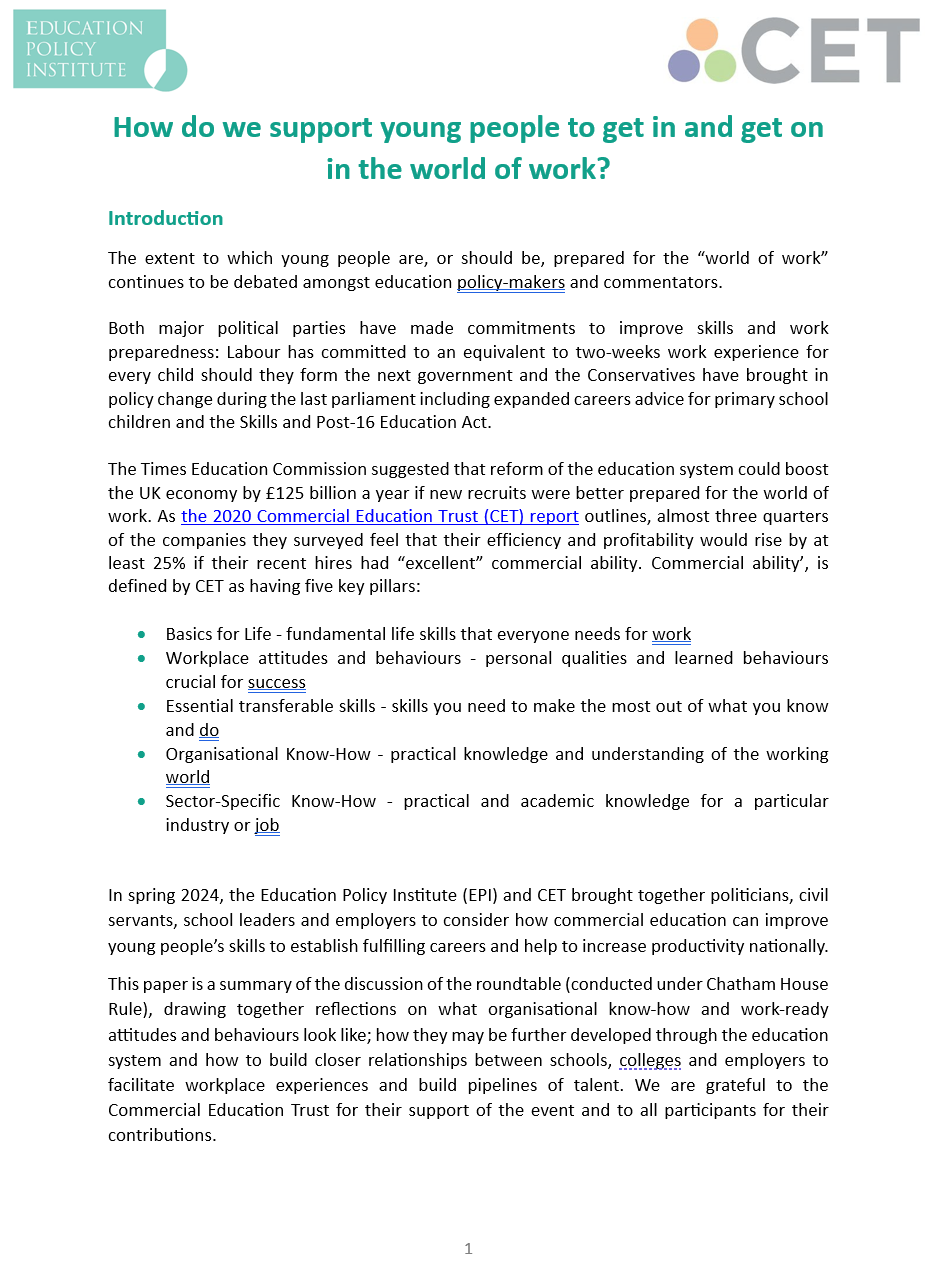The extent to which young people are, or should be, prepared for the “world of work” continues to be debated amongst education policy-makers and commentators.
Both major political parties have made commitments to improve skills and work preparedness: Labour has committed to a two-week work experience placement for every child should they form the next government and the Conservatives have brought in policy change during the last parliament including expanded careers advice for primary school children and the Skills and Post-16 Education Act.
The Times Education Commission suggested that reform of the education system could boost the UK economy by £125 billion a year if new recruits were better prepared for the world of work. As the 2020 Commercial Education Trust (CET) report outlines, almost three quarters of the companies they surveyed feel that their efficiency and profitability would rise by at least 25% if their recent hires had “excellent” commercial ability. Commercial ability’, is defined by CET as having five key pillars:
- Basics for Life – fundamental life skills that everyone needs for work
- Workplace attitudes and behaviours – personal qualities and learned behaviours crucial for success
- Essential transferable skills – skills you need to make the most out of what you know and do
- Organisational Know-How – practical knowledge and understanding of the working world
- Sector-Specific Know-How – practical and academic knowledge for a particular industry or job
In spring 2024, the Education Policy Institute (EPI) and CET brought together politicians, civil servants, school leaders and employers to consider how commercial education can improve young people’s skills to establish fulfilling careers and help to increase productivity nationally.
This paper is a summary of the discussion of the roundtable (conducted under Chatham House Rule), drawing together reflections on what organisational know-how and work-ready attitudes and behaviours look like; how they may be further developed through the education system and how to build closer relationships between schools, colleges and employers to facilitate workplace experiences and build pipelines of talent. We are grateful to the Commercial Education Trust for their support of the event and to all participants for their contributions.
Please see the summary paper in full here.
The roundtable and summary paper were supported by the Commercial Education Trust.
CET is a charity which believes Commercial Ability is essential to the development of young people to survive and thrive in the world of work and within society more widely. By improving their Commercial Ability, young people are better equipped with the knowledge, attitudes, skills, and behaviours to begin their journey towards a successful, fulfilling career, be that in employment, self-employment, or enterprise.



